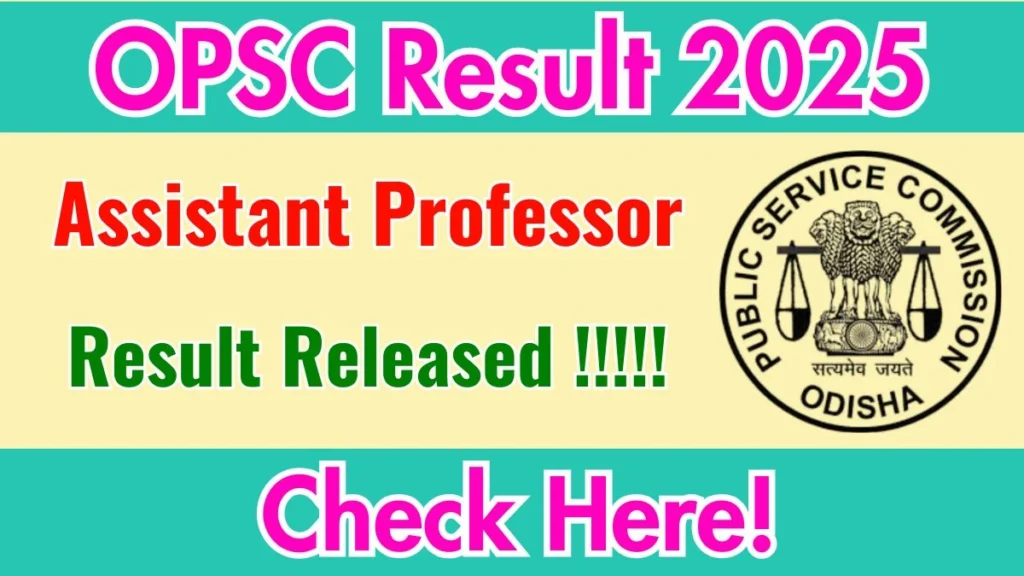By Social-Hire.com
Struggling to fill your client pipeline consistently? You’re not alone. We see this challenge daily when speaking with law firm partners across the UK, US, and Canada. Traditional referrals are wonderful, but they’re not enough to sustain steady growth in today’s competitive market. The feast-or-famine cycle isn’t inevitable.
Smart law firms are building predictable client acquisition systems that deliver results month after month. They’re not just hoping for word-of-mouth recommendations—they’re actively creating opportunities to showcase their expertise and attract quality clients who value their services.
This article walks you through proven marketing strategies that actually work for professional service firms. We’ll cover both digital approaches and traditional methods that complement each other beautifully. By the end, you’ll have a clear roadmap for building a sustainable marketing system that positions your firm as the obvious choice in your practice area.
Build Your Foundation: Website and SEO Optimization
Your website is your digital storefront, and first impressions matter enormously. When potential clients search for legal services, you want them to find you—and when they do, you want them to immediately understand why you’re their best choice.
Start with the basics: ensure your site loads quickly, looks professional on mobile devices, and clearly communicates your value proposition within seconds of arrival. Clean navigation and obvious contact information are non-negotiables.
Your homepage should answer three critical questions: what services do you offer, who do you serve, and why should they choose you over competitors? Search engine optimization (SEO) is how potential clients find you organically. Focus on both general SEO tactics and local search optimization since most legal services are location-specific (Source: Qanooni AI). This includes optimizing your Google Business Profile, gathering positive reviews, and ensuring your firm appears in local directories.


On-page SEO involves strategically using keywords that your ideal clients actually search for. Think beyond “personal injury lawyer”—consider phrases like “car accident compensation specialist” or “workplace injury attorney.” These longer-tail keywords often convert better because they indicate more specific intent (Source: Qanooni AI).
Technical SEO Essentials
Don’t overlook the technical aspects that search engines care about. Page speed directly impacts both user experience and search rankings. Use tools like Google PageSpeed Insights to identify and fix loading issues.
Create clean URL structures that include your target keywords naturally. Instead of “yourfirm.com/page1234,” use “yourfirm.com/personal-injury-attorney-london.” This small change helps both search engines and visitors understand what each page offers. Local SEO deserves special attention for law firms.
Claim and optimize your listings on Avvo, Martindale-Hubbell, and other legal directories. Consistency matters—ensure your firm name, address, and phone number match everywhere they appear online.
Content Marketing That Builds Authority
Content marketing is where you demonstrate expertise while helping potential clients understand complex legal issues. This isn’t about writing academic papers—it’s about creating valuable resources that address real concerns your clients face. Start with the questions you hear repeatedly in consultations.
These become perfect blog post topics because they represent genuine search queries. If clients often ask about settlement timelines in personal injury cases, create detailed content explaining the process, factors that affect timing, and what clients can expect at each stage.
High-quality content serves multiple purposes: it improves your search rankings, positions you as an expert, provides material for social media sharing, and gives you something valuable to discuss during networking events (Source: Number Analytics). Think of each piece as an investment that continues paying dividends over time.

- Case studies showing successful outcomes (while maintaining client confidentiality)
- FAQ articles addressing common legal concerns in your practice area
- Process guides explaining what clients can expect when working with you
- Legal update posts discussing changes that affect your clients
- Educational resources like checklists or templates
Video content deserves special consideration. Many people prefer watching explanations rather than reading lengthy articles. Create short videos answering common questions, explaining your process, or introducing your team. These work excellently on your website, social media platforms, and during client presentations.
Content Distribution Strategy
Creating great content is only half the battle—you need a solid distribution strategy. Share blog posts across your social media channels with engaging captions that encourage interaction. Email newsletters to existing clients and contacts keep your firm top-of-mind and demonstrate ongoing value.
Consider repurposing content across multiple formats. A detailed blog post can become a series of social media posts, an email newsletter topic, a webinar presentation, or even a downloadable PDF guide.
This maximizes your investment in content creation while reaching different audience preferences. Guest posting on relevant industry publications or local business blogs expands your reach significantly. Look for opportunities to contribute insights on legal websites, business publications, or community platforms where your ideal clients spend time.
Social Media Strategy for Professional Services
Social media for law firms isn’t about going viral—it’s about building relationships and demonstrating expertise consistently.
The key is choosing platforms where your ideal clients spend time and creating content that adds genuine value rather than obvious self-promotion. LinkedIn often delivers the highest ROI for B2B legal services.
Business owners, executives, and other professionals who might need legal services are active there daily. Share insights, comment thoughtfully on others’ posts, and engage in relevant group discussions. This approach to social media for law firms focuses on relationship building rather than broadcasting.

The four-step approach we use with professional service clients works excellently for law firms: identify your audience, develop a content strategy, create valuable content consistently, and convert engaged followers into consultations. Each step builds on the previous one to create a sustainable system.

Remember that social media marketing for professional services is a marathon, not a sprint. Consistency beats sporadic bursts of activity. It’s better to post valuable content twice per week indefinitely than to post daily for a month and then disappear for six months.
Building Authentic Engagement
Authentic engagement means participating in conversations rather than just broadcasting your message. When someone shares a business challenge that relates to your expertise, offer helpful insights without immediately pushing your services. This approach builds trust and positions you as someone who genuinely cares about helping others. Share other people’s content when it’s valuable to your audience.
This demonstrates that you’re paying attention to your industry and willing to highlight good work, even when it’s not your own. Other professionals notice this behavior and are more likely to share your content in return.
Personal branding plays a crucial role here. People hire lawyers they trust, and trust develops through consistent, helpful interactions over time. Share your perspective on industry developments, celebrate client successes (with permission), and don’t be afraid to show some personality while maintaining professionalism.
Lead Generation Through Paid Advertising
Organic marketing builds long-term authority, but paid advertising can deliver immediate results when you need clients now.
The key is targeting your ads precisely to reach people who are actively looking for legal services in your area. Google Ads work particularly well for law firms because they capture high-intent searches. Someone searching “personal injury lawyer near me” is likely ready to hire legal representation soon.
Target ads by location and practice area for best results (Source: Qanooni AI). Pay-per-click campaigns require careful management to avoid wasting money on irrelevant clicks. Use negative keywords to exclude searches that aren’t relevant to your services.
Monitor your campaigns closely and adjust based on which keywords and ad copy generate actual consultations rather than just clicks.

Facebook and Instagram advertising offer powerful targeting options based on demographics, interests, and behaviors. You can reach business owners in specific industries, people going through major life changes, or individuals who have shown interest in legal topics. The key is creating compelling ad copy that speaks directly to their current situation and concerns.
Conversion Optimization
Getting people to click your ads is only the beginning—you need landing pages that convert visitors into consultation requests. Create dedicated landing pages for each ad campaign rather than sending traffic to your general homepage.
These pages should focus on one specific service and include clear calls-to-action. Your landing pages should address the specific concern that prompted someone to click your ad. If they searched for “divorce attorney,” your landing page should immediately confirm they’ve found the right place and explain your approach to divorce cases.
Include testimonials, credentials, and easy ways to contact you. Track conversion metrics beyond just clicks and impressions. Monitor how many ad clicks turn into phone calls, contact form submissions, and ultimately, new client consultations. This data helps you optimize both your ad targeting and your conversion process over time.
Building Referral Systems That Scale
Referrals remain one of the most valuable sources of new clients for law firms, but hoping for referrals isn’t a strategy. Build systematic approaches that make it easy and rewarding for satisfied clients and professional contacts to refer business to you. Start with exceptional client service that naturally encourages referrals.
When clients have positive experiences, they’re more likely to recommend your services to others. But don’t leave this to chance—create specific touchpoints where you can request referrals from satisfied clients. Consider implementing a formal referral program that acknowledges and rewards people who send business your way.
This doesn’t necessarily mean expensive gifts—sometimes a thoughtful thank-you note or small token of appreciation is more meaningful than cash rewards. The key is consistency and genuine gratitude (Source: Qanooni AI).
- Follow up with clients after successful case resolution to request referrals
- Create referral cards that clients can easily share with friends and colleagues
- Develop relationships with complementary professionals who serve similar clients
- Send regular updates to your referral network about your services and successes
Professional networking deserves special attention. Build genuine relationships with accountants, financial advisors, real estate agents, and other professionals who work with your ideal clients. These relationships often produce higher-quality referrals because they come with built-in trust and context.
Nurturing Professional Relationships
Professional referral relationships require ongoing attention. You can’t network once and expect referrals forever. Stay in regular contact with your referral sources through emails, phone calls, coffee meetings, or professional events.
Update them on interesting cases (maintaining confidentiality), share relevant articles, and look for ways to refer business to them as well. Host educational events for referral partners about legal topics that affect their clients. An estate planning attorney might host seminars for financial advisors about trust structures.
A business attorney could present to accountants about legal considerations in business sales. These events provide value while keeping your services top-of-mind. Create systems to track referral sources and follow up consistently.
When someone refers a client to you, acknowledge it promptly and update them on the outcome (when appropriate). This reinforces the value of their referral and increases the likelihood they’ll refer again in the future.
Reputation Management and Social Proof
Your online reputation directly impacts your ability to attract new clients. Most people research law firms online before making contact, and negative reviews or lack of social proof can eliminate you from consideration before you even know they existed.
Monitor your online presence across all platforms where clients might leave reviews: Google Business, Avvo, Martindale-Hubbell, and social media platforms. Set up Google Alerts for your firm name so you know immediately when someone mentions you online. Respond professionally to all reviews, both positive and negative.
Thank clients who leave positive feedback and address any concerns raised in negative reviews. Your responses show potential clients how you handle challenges and demonstrate your commitment to client satisfaction.

Proactively request reviews from satisfied clients. The best time to ask is shortly after a successful outcome when clients are most appreciative of your work. Make the process easy by providing direct links to your preferred review platforms and clear instructions on what to include.
Showcasing Social Proof
Social proof extends beyond online reviews to include testimonials, case results, professional recognition, and media coverage.
Create a systematic approach for collecting and displaying these credibility indicators across your marketing materials.
Client testimonials carry significant weight, but they must be authentic and specific. Generic praise like “great lawyer” isn’t as compelling as detailed stories about how you solved specific problems or exceeded client expectations. Always obtain written permission before using client testimonials in your marketing.
Professional achievements like awards, certifications, speaking engagements, and published articles all contribute to your credibility. Don’t be modest about highlighting these accomplishments—potential clients need to understand why you’re qualified to handle their legal matters.
Networking and Offline Marketing
While digital marketing gets most of the attention, offline networking remains crucial for law firms. Personal relationships often determine where business owners, executives, and individuals turn when they need legal services.
The challenge is networking strategically rather than randomly attending events and hoping for the best.
Focus your networking efforts on events where your ideal clients are likely to attend. Business owners might be active in local chambers of commerce, industry associations, or professional organizations.
Estate planning attorneys should consider events attended by financial advisors, elder care professionals, or high-net-worth individuals. Community involvement can build your reputation while supporting causes you care about.
Sponsor local events, volunteer for nonprofit boards, or host educational workshops for community groups. These activities position you as a committed community member while creating opportunities to meet potential clients and referral sources (Source: Big Dog ICT). Quality beats quantity in networking.
It’s better to build genuine relationships with a smaller group of people than to collect hundreds of business cards without meaningful follow-up. Focus on lead generation strategies that emphasize relationship building over transactional interactions.

Event Marketing and Speaking Opportunities
Position yourself as an expert by speaking at relevant conferences, seminars, or workshops. This approach allows you to demonstrate your knowledge to groups of potential clients or referral sources while building authority in your practice area. Start with local events and expand your reach as you become more comfortable with public speaking.
Create educational workshops that provide genuine value while subtly showcasing your expertise. A family law attorney might host seminars about divorce financial planning. A business attorney could present workshops about legal considerations for startups. These events position you as a helpful expert rather than someone just trying to sell services. Follow up consistently after networking events. Send personalized messages within 48 hours referencing your conversation and offering something valuable—perhaps an article related to their business or an invitation to an upcoming event. This follow-up separates serious networkers from casual attendees.
Measuring Success and ROI
Marketing without measurement is just expensive guessing. Track key performance indicators that directly connect to business outcomes rather than getting distracted by vanity metrics that don’t impact your bottom line.
We always tell our clients that likes and shares don’t pay the bills—new client consultations do. Focus on metrics that matter: website traffic from target keywords, consultation requests generated by different marketing channels, cost per lead for paid advertising campaigns, and ultimately, how many leads convert into paying clients.
These measurements help you allocate your marketing budget toward activities that actually generate business. Set up Google Analytics to track website performance and Google Tag Manager for more advanced tracking. Monitor which pages generate the most consultation requests, which blog posts attract qualified traffic, and which referral sources send the highest-value clients. This data guides your future marketing decisions (Source: Qanooni AI).

Regular reporting helps you identify trends and adjust your strategy accordingly. Monthly reviews of your marketing performance allow you to spot problems early and capitalize on successful tactics. Share these insights with your team so everyone understands which activities contribute most to business growth.
Attribution and Client Journey Tracking
Understanding how clients find and choose your firm requires tracking their entire journey from first contact to signed agreement.
Many clients interact with your marketing multiple times before making a decision—they might find you through search, follow you on social media, attend a webinar, and then request a consultation weeks later. Implement systems to track multiple touchpoints rather than giving all credit to the last interaction before conversion.
Ask new clients how they heard about you and what influenced their decision to contact your firm. This qualitative feedback often reveals important insights that pure analytics miss. Use customer relationship management (CRM) software to track client interactions and identify patterns in your most successful client acquisitions.
This information helps you refine your approach and focus on the most effective combination of marketing tactics.
Getting Started: Your 90-Day Action Plan
Building an effective marketing system doesn’t happen overnight, but you can see results within 90 days if you focus on the right activities.
Start with fundamentals that provide the foundation for everything else, then layer on additional strategies as you build momentum. Successful marketing for professional service firms requires consistency over perfection. It’s better to implement a simple system consistently than to attempt everything at once and execute poorly.
Choose 2-3 strategies from this guide and commit to implementing them thoroughly before adding new tactics.
Your first 30 days should focus on foundations: optimize your website, set up tracking systems, and begin creating valuable content.
Days 31-60 are for building momentum with consistent content creation, social media engagement, and networking activities. The final 30 days involve refining your approach based on early results and expanding successful tactics.
- Week 1-2: Audit current online presence and fix critical issues
- Week 3-4: Set up analytics tracking and create content calendar
- Week 5-8: Launch consistent content creation and social media engagement
- Week 9-12: Analyze results, optimize successful tactics, and plan expansion
The key is treating marketing as an essential business function rather than something you do when you have spare time. Block dedicated time each week for marketing activities and protect that time as you would any important client meeting. Many successful firms find that outsourcing certain marketing functions allows them to focus on client service while ensuring marketing activities happen consistently. Remember that marketing for law firms is about building trust and demonstrating expertise over time. Quick fixes and shortcuts rarely work in professional services because clients are making significant decisions and need confidence in their choice. Focus on being genuinely helpful, and the business results will follow naturally.






